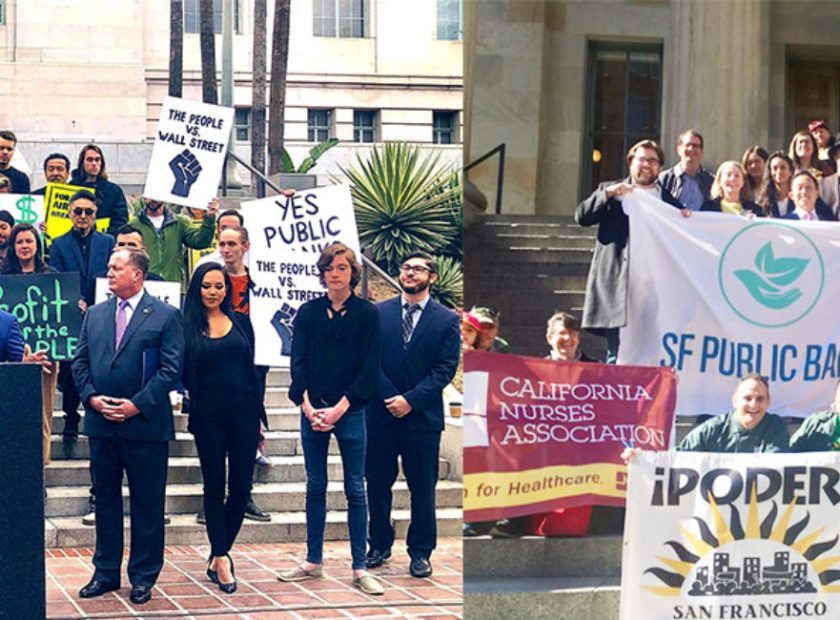By Robert R. Raymond, Truthout. It may not come as a surprise to hear that the majority of Americans don’t trust the banking system in this country. Only 27 percent of those surveyed in a 2016 Gallup poll said they had “a great deal” or “quite a lot” of confidence in the institution — less than half of the record high set in 1979. And the lack of trust is spread relatively evenly across the political spectrum — it’s not just liberals or those on the left: Almost everyone is fed up with the banks.
And if banking institutions don’t exactly spark joy, their lead characters — morally bankrupt investment bankers whose greed and arrogance almost singlehandedly collapsed the entire country’s economy — certainly don’t spark joy either. It’s an old story: Bankers made obscene amounts of money destroying the economy, we bailed them out, they walked away from it all without a shred of accountability and there’s nothing anyone can do about it. But that’s not where the story has to end. Spurred by the need for an alternative to the for-profit, extractive model of finance exemplified by Wall Street, there is a budding movement in the United States that is working to reimagine banking as an institution that truly serves the public.
Public banking is an old idea, but it has never been very common in the United States. The first and only public bank in the country was founded exactly 100 years ago in North Dakota, and it wasn’t until relatively recently that the idea has begun to find new life in cities and states across the country. Growing largely out of the need for more democratic ownership over capital, the aim of this budding movement is to create a robust public banking infrastructure across the nation that is rooted in the principles of economic, environmental, racial and social justice.
Continue reading on Truthout.



